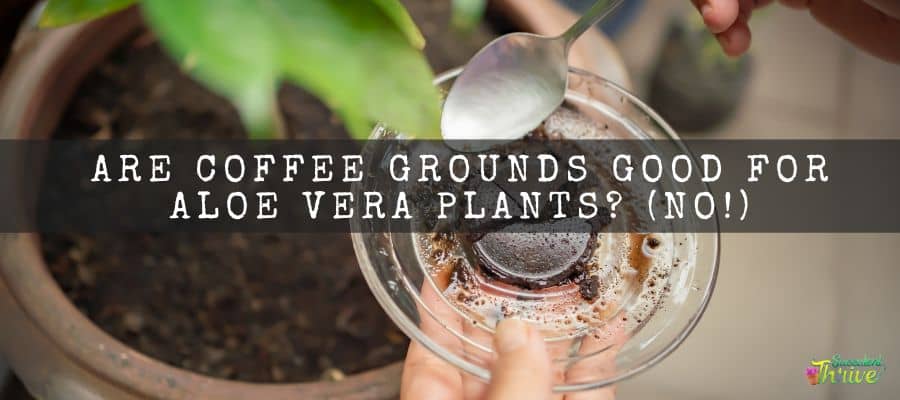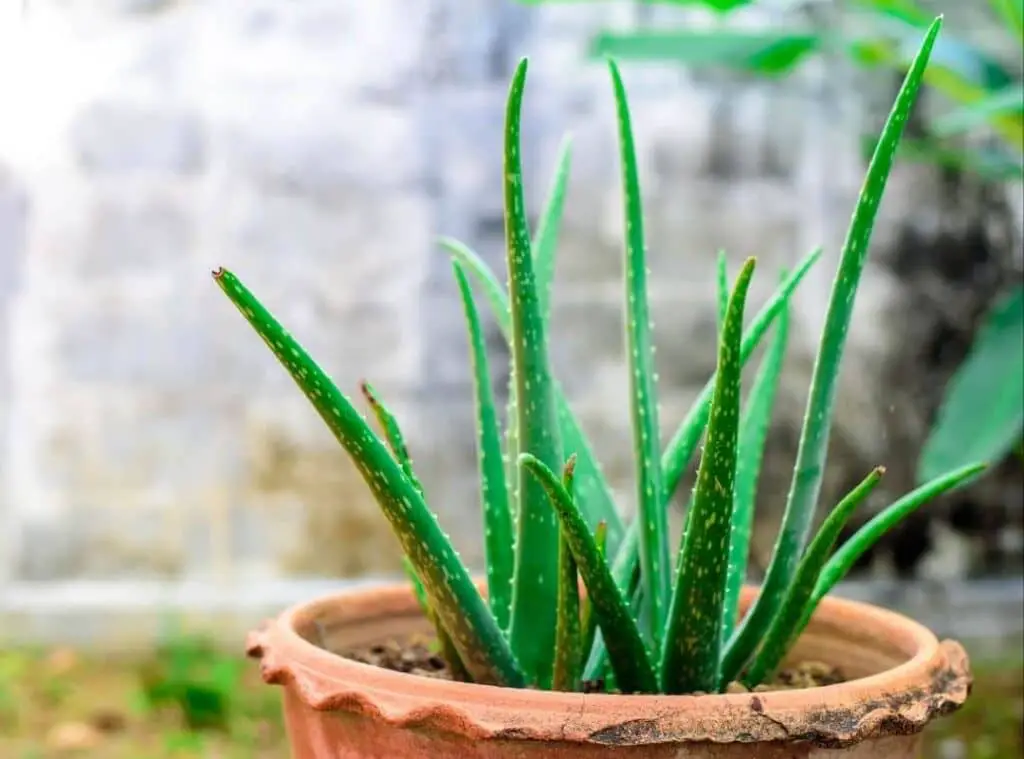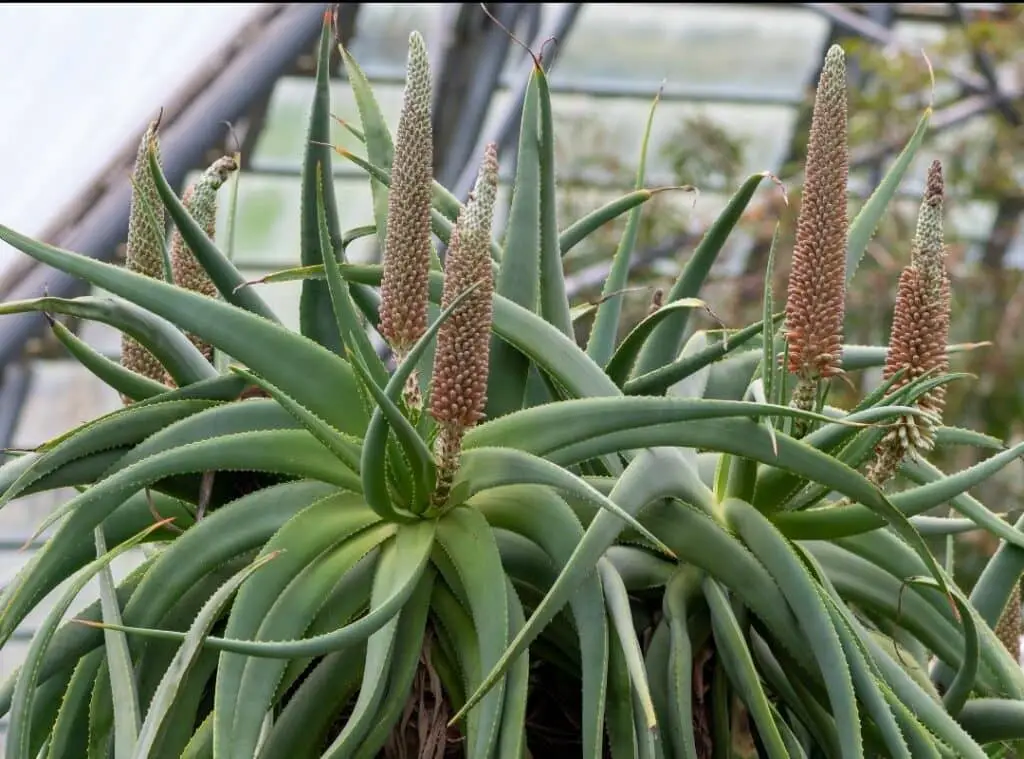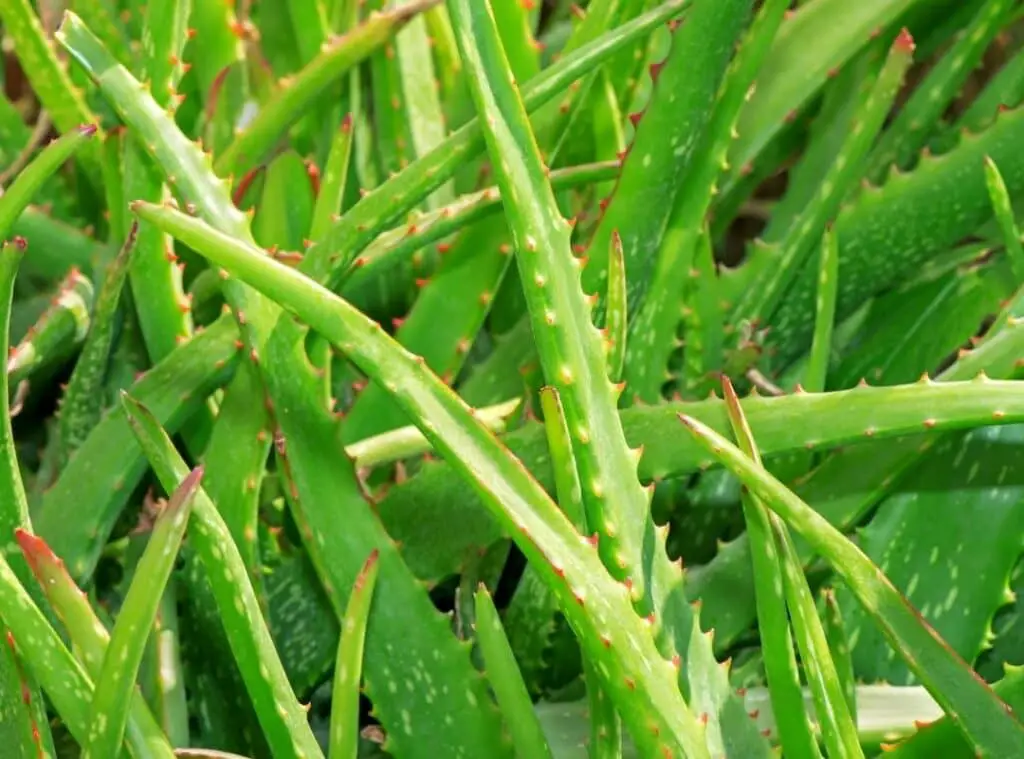You need to provide enough fertilizer to grow aloe well. So are coffee grounds good for aloe vera plants as a fertilizer?
As you may already be aware, coffee grounds make an excellent fertilizer and are frequently used by gardeners. But unfortunately spent coffee ground is not a good fertilizer for aloe vera. In order to learn everything you need to know in this regard, use this article as a guide.

Are coffee grounds good for Aloe Vera plants ?
Aloe vera plants are not a big fan of ground coffee, as these plants prefer to grow in neutral or alkaline soil. If you mixed coffee grounds with their soil, it would make the potting medium acidic. Further, it can even impede the growth of the plants. Aloe vera plants don’t depend much on nutrients. As such, it is important that you always apply the diluted fertilizers. In addition to that, the chosen pot should comprise ample drainage, too.
What are the best fertilzier for Aloe Vera plants
Researchers from Islamic Azad University, led by Dr. Hoseini, found that organic fertilizers and organic waste materials improved aloe vera growth indices. They used pigeon manure, palm waste and vermicompost as organic waste.
Similar to that you can use below mentioned fertilizers for the optimum growth of the aloe plant.
Egg shells
Eggshells are a common kitchen waste that you can easily find. Simply wash away any leftover yolk or egg white from that and feed it to the plants. Keep in mind that eggshells work well as fertilizer for succulents as well. You may either crush the eggshells and then apply them to the soil or make eggshell tea and then use it.
Banana peel
I can safely say banana peels are the best compost for the aloe plants. However, many people don’t have a proper understanding of their benefits. In addition to that, when you use banana peels for fertilizing, you can even cut down on food waste as well. When you mix it with the compost, all you have to do is simply cut the peel and then mix it with the soil. Thereafter, decomposition would take place.
Epsom salt
Epsom salt is a common fertilizer type used to feed aloe vera plants. If you wish to use them, you only need to add a small amount of Epsom salt and then dissolve it in water. Thereafter, you may apply them. This type of fertilizer contains multiple minerals, which would be beneficial for healthy growth in the plants.
Coffee
Even though you cannot use coffee grounds as fertilizer for aloe, you can consider using coffee to feed the plants. You simply have to sprinkle them around the plants. Once you do this, it will not have any impact on the acidity of the soil. Further, it would attract the healthy worms in the ground and minimize the metal concentration as well. In fact, if you use coffee grounds, they would not be harmful, but they could have an impact on the acidity of the soil.Maintain a close eye on the plant’s condition and look for any early warning signs of disease.

How Do I Increase The Growth Of My Aloe Vera Plant?
Try to place the aloe plants outdoors as much as you can. Make sure that you don’t allow the pot to become overcrowded as well.
What Is the Natural Fertilizer for Aloe Vera?
I suggest using food waste as the best natural fertilizer to feed the aloe plants. They would make your precious aloe vera plants more versatile. How simple it is to use fridge waste as fertilizer for aloe plants. Further, what is good about this option is that you could minimize the kitchen waste as well. You could use egg shells or banana peels if you want to feed them naturally.
However, keep in mind not to overfeed the plant. If you overfeed your aloe with food waste, the soil will become acidic and the plant will die.
When Should I Fertilize My Aloe Plant?
Aloe plants don’t depend much on fertilizers. However, it would be best if you could feed these plants twice a year prior to their active growing season. This task is best accomplished with a half-strength water-soluble fertilizer. Ideally, it should consist of both phosphorus and water.
How Do You Make Homemade Aloe Vera Fertilizer?
If you prefer to make your own aloe vera fertilizer, simply combine aloe vera leaves into a water-colored powder and use. You may alternatively use aloe vera gel to do this task as well. The ideal ratio should be one cup of pure aloe vera gel to one gallon of water. Besides, if you want to use dry aloe powder, you could just use a half-cup of it and mix it with one gallon of water.

What are the benefits of using coffee grounds as fertilizers (Except Aloe vera).
Aloe vera doesn’t like coffee grounds. However, you could use it for other plants, and they would be useful in the following aspects:
Soil drainage
Ground coffee is an excellent organic material. So, when you add them, it would enhance the soil quality to some degree. When you add a few cups of ground coffee, it will help improve the drainage of the soil. As a result, it would ensure that there are no clogs in the plant’s roots. That said, you need to mix the ground coffee with the soil to get the best results. Unless the small particles in the coffee become compacted, they will not mix with the other materials.
What are the Benefits of using ground coffee as fertilizers
When you use ground coffee as fertilizer, it helps to improve soil aeration. Consequently, the water absorption would take place effectively, and ultimately, it would improve the overall health of the plants as well. Besides these benefits, it would also help to increase the nitrogen level in the soil mix.
Ground coffee is a common green waste. FIt also has higher levels of nitrogen. So when they start decaying, it would nourish the soil mix with high levels of essential nutrients. So, when you add Ground coffee to the plants it would make them develop lush leaves and further enhance the foliage growth as well.
Besides these two benefits, ground coffee would act as a natural bug repellent too. For example, it would protect the plants from snails and slugs. These pests are such nasty, troublesome animal species that they would create so much trouble for the plants as well as for the gardeners. In fact, they would end up feeding on the plants, resulting in the plants using major chunks of their foliage. Aside from that, they would cause discoloration in the plants. So, when you apply coffee grounds, their strong smell would repel them and stop them from coming towards the plants.
Besides these benefits, coffee grounds would help to create a healthy worm population around the plants too. Worms are fond of eating ground coffee. So, I suggest you use them in the compost, as that would allow the compost to attract more worms. Consequently, it would enhance soil aeration as well. Furthermore, worms would play a major role in creating healthy roots in the plants too.
You could also use ground coffee as mulch. All you need to do is simply mix it with natural materials, such as shredded leaves. Mulch is more like a top layer of the soil, and it would make the water evaporation from the soil somewhat slow too. Furthermore, it would aid in the retention of heat during colder weather. Lastly, it would prevent the weeds from spreading too.
Ground coffee would work as well as a slow-release fertilizer.
If you are looking for a fertilizer that releases nutrients at a slow pace, ground coffee would suit you the best, and it would act as an effective fertilizer there. Ground coffee contains a variety of nutrients. For example, it has nitrogen, potassium, phosphorus, and other macronutrients as well. These are all beneficial micronutrients that would aid in the healthy growth of the plants.
That said, the plants would not be able to absorb the nutrients right at the moment you apply them, as those nutrients would break down somewhat slowly. However, even though ground coffee has these benefits, it is best to avoid using it on aloe plants.
What plant research says about coffee ground
According to Domenico Ronga (Department of Life Sciences, University of Modena and Reggio Emilia) and his co-authors; spent coffee ground compost was evaluated as a component of growing media to partially replace commercial peat and fertilizers in the production of potted plants, and was found to be suitable for use as a partial peat substitute in the production of potted plants, as it enhanced plant growth and provided nutrition to plants.
In another study Tomasz Ciesielczuk from Department of Land Protection, Opole University, Oleska mentioned; SCG and ash from biomass have the potential to be used as the main components of affordable fertilizers for organic crop cultivation, which could help to utilize organic compounds in waste and the mineral compounds found in ash from biomass.
Unfortunately, there is a lack of research on the relationship between using aloe vera and coffee grounds as fertilizers.
Is Coffee Ground Good for Succulents?
Coffee grounds are beneficial to succulents because they provide a source of nitrogen. Nitrogen is an important compound for the healthy and vigorous growth of the succulents. Furthermore, it would enhance the drainage factor in the soil. Further, it would be beneficial to enhance soil aeration as well. Besides, it would be effective in suppressing any weed infestation that could take place as well. Lastly, it would protect the succulents from pests’ attacks as well.

Frequently asked questions
Are there any plants that don’t like ground coffee except aloe vera plants?
The acidity of ground coffee is too light, and you should avoid adding it directly to the soil. So, you need to avoid using them on plants such as azaleas.
Is ground coffee suitable for all plants?
Because of its high acidity, ground coffee is not suitable for all plants.
How often should you add ground coffee to the soil?
Generally, you can add one cup of ground coffee per week to get the best results.
Final thoughts
This article covered a lot of information about the aloe vera plants as well as the possibility of using ground coffee as a type of fertilizer for them. So, you can rest assured that you have cleared all of your concerns about this matter.
Read Next : Aloe Marlothii Or Mountain Aloe Useful Care Tips
Read Next : Aloe Guido | 15 Super Important Care Facts About This Cute Plant |
Read Next : Aloe Crosbys Prolific | 14 Care Facts You Would Love |
